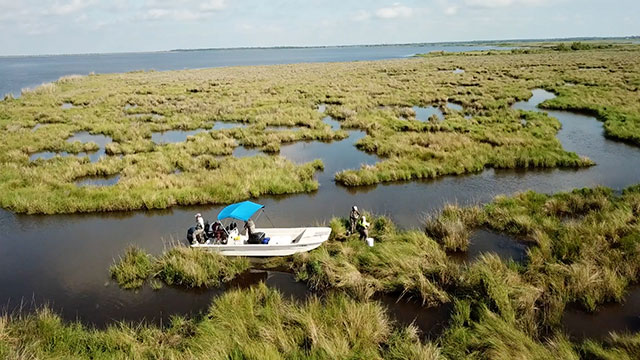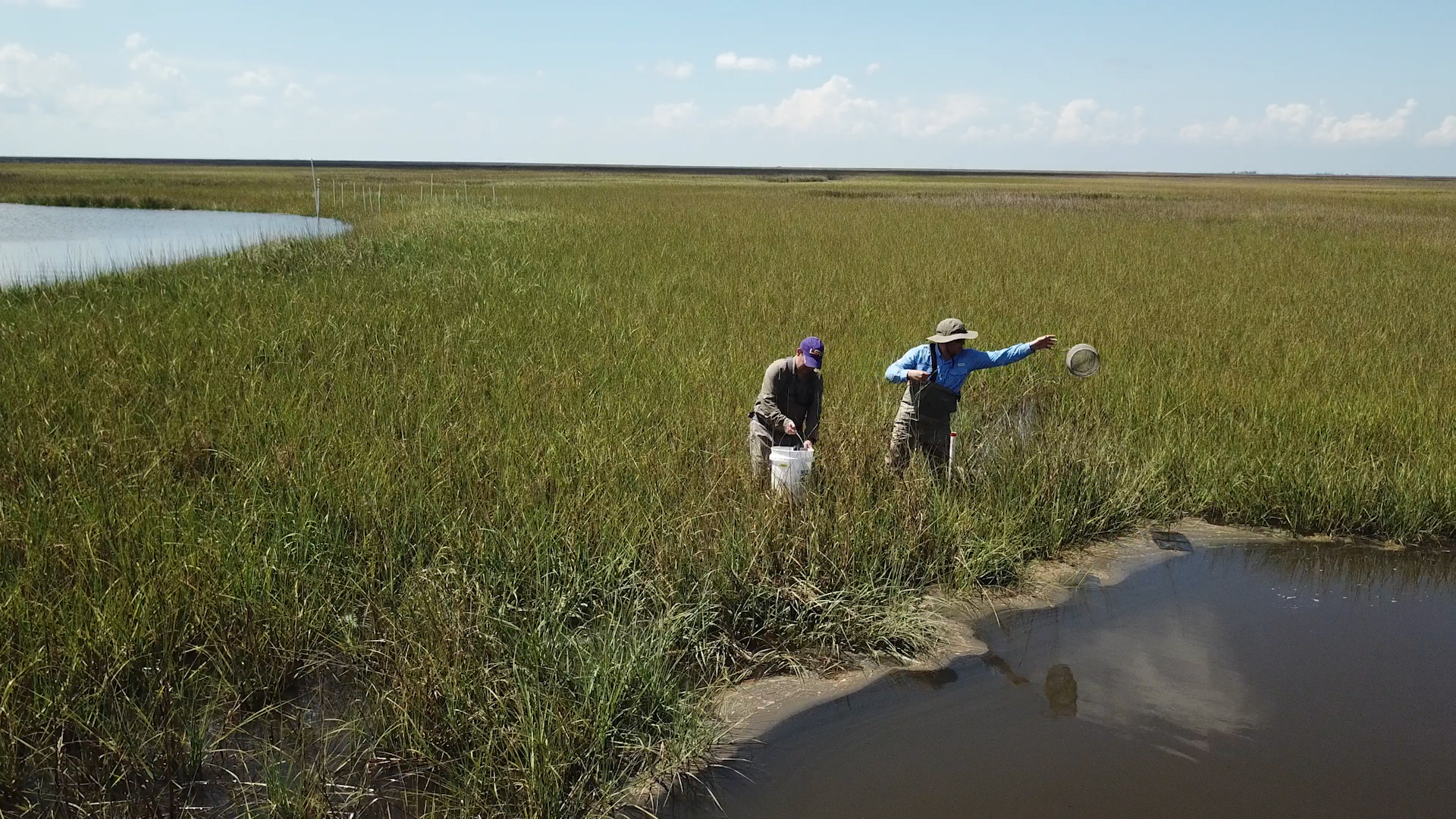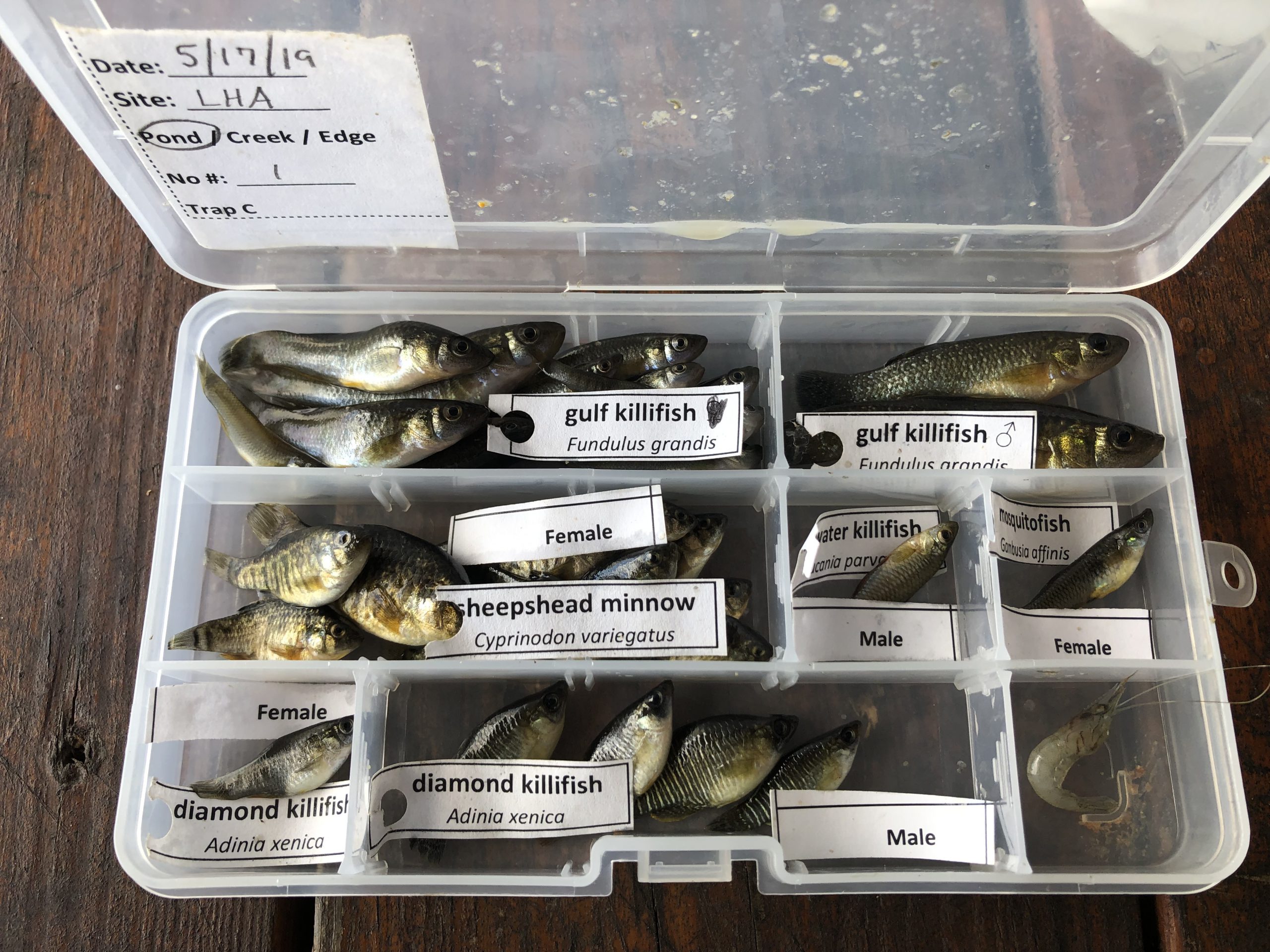
With funding from NOAA’s RESTORE Science Program, administered by NCCOS, researchers from Louisiana State University and six other universities are working to understand how Louisiana’s river diversion and marsh creation projects will impact the state’s coastal ecosystem.
Louisiana has lost almost 2,000 square miles of coastal land since the 1930s, due to a combination of levees built along the Mississippi River, canal dredging for oil and gas development, and sea level rise. Normally, rivers replenish coastal land with new sediment, but Louisiana’s flood control levees have deprived coastal wetlands of the deposits they need to survive. Without action, Louisiana stands to lose as much as 4,120 square miles in the next fifty years, along with the storm protection that such land provides to coastal communities and some of the nation’s most economically important ports.

Project lead Dr. Michael Polito (right) from Louisiana State University deploys a pond trap in a Louisiana marsh, 2019. Credit: Louisiana State University.

Pond trap samples help the researchers determine species composition and food web dynamics in both natural and created marshes. Credit: Louisiana State University.
The state is now working to reverse this trend by creating new coastal marshes and reconnecting the Mississippi River to its historic floodplain. But how will these newly created marshes, and the sudden introduction of freshwater to the coast, affect the state’s coastal ecosystem—one that has made Louisiana second only to Alaska in domestic seafood production?
The research team aims to answer this question by investigating how salinity influences species composition and food web dynamics in both natural and created marshes. The ultimate goal is to identify the factors that cultivate a thriving ecosystem and successful marsh creation projects. The team will use these data to develop a model that predicts how river diversions will affect marsh food web structure, function, and resilience. State and federal managers can then use the modeling tool to guide restoration efforts and help ensure Louisiana’s coast remains healthy and productive.
 Official websites use .gov
A .gov website belongs to an official government organization in the United States.
Official websites use .gov
A .gov website belongs to an official government organization in the United States. Secure .gov websites use HTTPS
A lock or https:// means you’ve safely connected to the .gov website. Share sensitive information only on official, secure websites.
Secure .gov websites use HTTPS
A lock or https:// means you’ve safely connected to the .gov website. Share sensitive information only on official, secure websites.